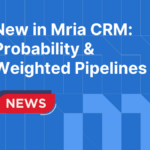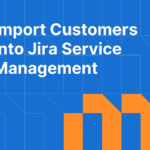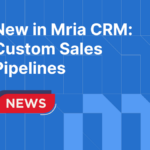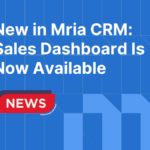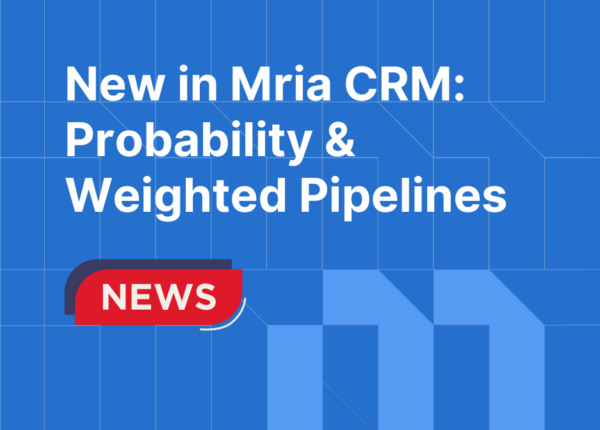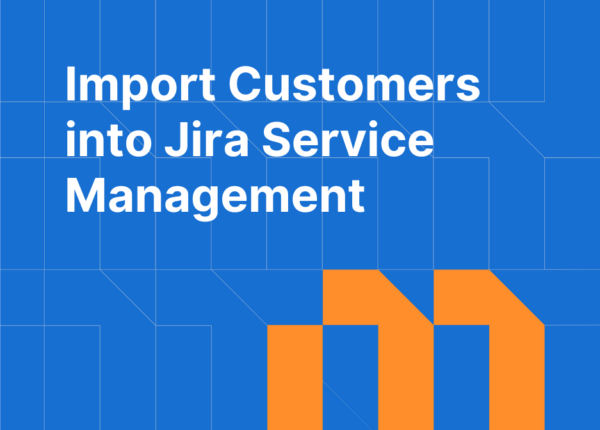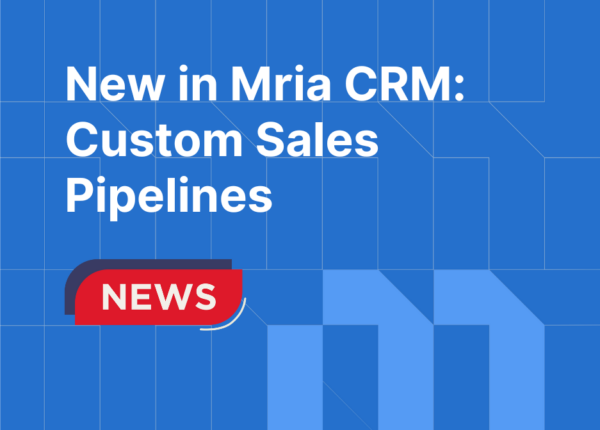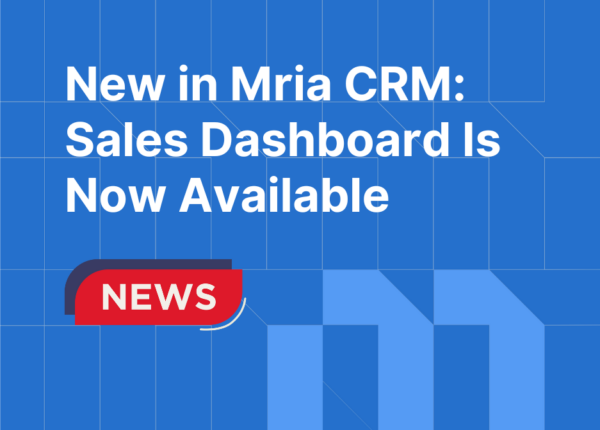CRM platforms are packed with features, but not all of them make a difference. Whether you’re in sales, marketing, support, or operations, the best CRM features are the ones that support your actual workflows, scale with your growth, and keep your team focused.
This guide outlines the essential, advanced, and industry-specific CRM features that matter most. If you’re evaluating systems, use this as a checklist. If you’re already using one, consider whether you’re getting the most from it.
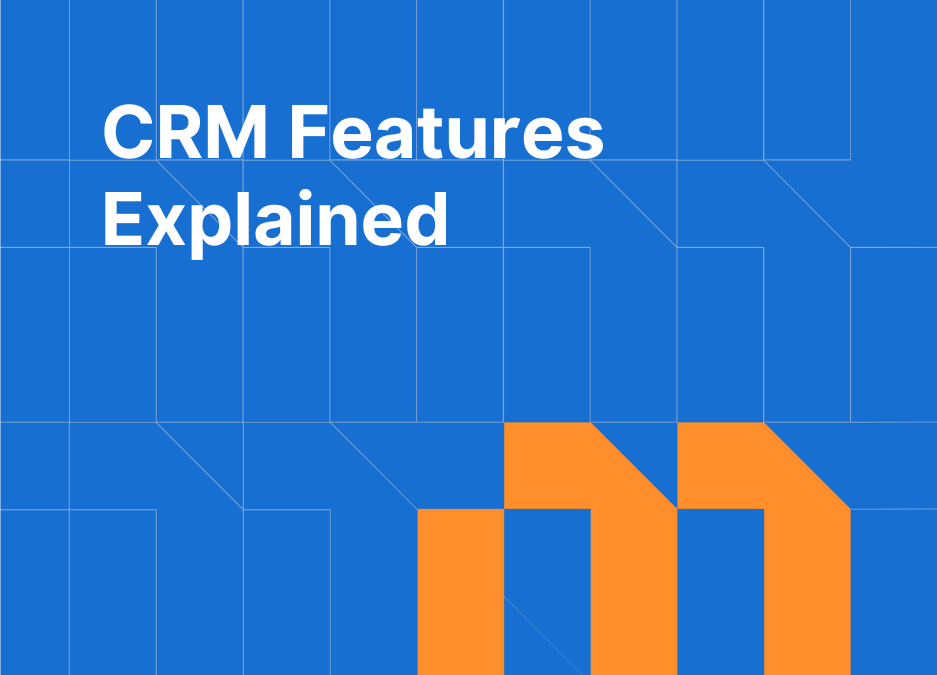
Table of Contents
Basic CRM Features Every Business Needs
These core CRM features are the foundation of any reliable system. They cover basic functions and features and are relevant across nearly every use case and industry.
1. Contact and Company Management
At the heart of every CRM is a database of people and organizations. You should be able to store detailed records, including:
- Names and roles
- Email, phone, and social profiles
- Company affiliations
- Custom fields
Relationship history should be attached to each record for full context.
2. Deal and Pipeline Tracking
This is a core CRM feature for sales teams. Deals can be tracked through defined stages (e.g., prospect → qualified → closed). Sales managers can view pipelines, forecast revenue, and identify bottlenecks.
3. Task and Activity Management
CRM users should be able to schedule follow-ups, assign tasks, and log calls, emails, and meetings. A timeline view helps teams see the full customer journey.
4. Notes and File Attachments
Store notes, upload files, and share documents directly inside deal records. This ensures all stakeholders have access to relevant materials.
5. Calendar and Reminders
Sync calendars, set reminders, and stay on top of meetings or deadlines. Many CRMs integrate with Google or Outlook calendars.
6. Reporting and Dashboards
Visual reports track performance over time. Common dashboards include:
- Sales by rep
- Pipeline value by stage
- Customer acquisition costs
- Campaign performance
7. Permissions and User Roles
Set access levels to control who sees and edits data. This is essential for security, compliance, and collaboration.
These basic CRM features are expected in any modern solution, whether you’re a small team or a large enterprise.
Advanced CRM Features That Add Real Value
As your CRM needs grow, advanced CRM features become essential for automation, customization, and integration.
1. Workflow Automation
Automate repetitive actions like:
- Assigning leads based on conditions
- Sending follow-up emails after form submissions
- Notifying account managers when deals reach a certain stage
Automation saves time and reduces errors.
2. Lead Scoring and Qualification
Rank leads based on predefined criteria such as engagement level, deal size, or fit. Sales teams can focus on the highest-value opportunities.
3. Custom Fields and Layouts
Tailor record layouts to fit your business model. For example, a real estate CRM might include property preferences, while a healthcare CRM tracks patient status.
4. Multi-Channel Communication
Advanced CRMs support calls, live chat, and even social messaging integrations, making it easier to reach customers where they are.
5. Integrations with Third-Party Tools
Connect your CRM to tools like:
- Email marketing platforms (Mailchimp)
- Project management (Jira, Trello)
- Accounting (QuickBooks, Xero)
- Customer support (Zendesk, JSM)
6. Mobile CRM Access
Mobile apps let your team access and update data in real time, whether they’re in the field or at a client meeting.
7. Data Cleanup Tools
De-duplicate contacts, validate emails, and maintain clean data automatically.
These advanced CRM software features are especially useful for scaling businesses or teams that rely on automation and analytics to stay efficient.
CRM Features by Business Function
Different teams use CRMs differently. Below is a breakdown of features by department.
CRM Features for Sales Teams
Sales needs more than storage; they need a workflow.
- Sales pipelines and stages
- Deal forecasting
- Activity tracking and reminders
- Quotas and performance dashboards
- Email templates and sequences
- Call logging and meeting notes
These features help sales teams stay organized, focused, and accountable.
CRM Features for Marketing
Good marketing CRMs go beyond just sending campaigns. They tie real outcomes to contacts and behavior.
- Campaign tracking and attribution
- Email and SMS integration
- Contact segmentation and tagging
- Custom lead fields and funnel tracking
- ROI reporting for marketing efforts
Marketing-focused CRMs often overlap with marketing automation platforms, but CRM-driven marketing centers on using contact data for targeting and messaging.
CRM Features for Customer Service
A CRM built for support must give teams the full picture.
- Support ticket management
- SLA tracking and escalations
- Activity history across channels
- Customer satisfaction (CSAT) and NPS tracking
- Service workflows and routing rules
Support teams benefit from having customer context available without switching tools. CRM features that track service interactions reduce friction and resolution time.
CRM Features by Industry
Different industries have specialized needs. Here are some of the most common vertical use cases and the CRM features that support them.
SaaS and Tech CRM Features
Tech companies and SaaS platforms rely on CRMs not just for sales—but for ongoing account health, product engagement, and retention.
- Subscription status and renewal tracking
- Customer success workflows and QBRs
- Product usage data integration (e.g., feature adoption, logins)
- Churn prediction and health scoring
- Support ticket visibility and success handoffs
- In-app messaging and onboarding sequence management
These CRM features help SaaS teams shift from reactive support to proactive account management.
Manufacturing CRM Features
Manufacturers often manage long sales cycles, channel partners, and post-sale support. A well-configured CRM can support both direct and distributor-based workflows.
- Account and contact hierarchy (buyers, influencers, operators)
- Quote and order tracking tied to deals
- Distributor and reseller relationship management
- Service case and warranty tracking
- ERP integration for parts availability and pricing
- Activity timelines tied to product interest or repeat orders
In manufacturing, CRM features support both commercial and operational excellence.
Legal Services CRM Features
For law firms and legal departments, a CRM is less about selling and more about managing relationships, timelines, and sensitive case communication.
- Contact and case file association
- Matter-level task tracking and deadlines
- Document storage with tagging and versioning
- Referral source tracking
- Role-based access for confidentiality
- Lifecycle views of client or case activity
Legal CRMs focus on precision, compliance, and deep visibility without compromising security.
Education CRM Features
Educational institutions use CRMs to manage engagement across the student lifecycle—from prospective applicants to alumni.
- Inquiry and application pipeline management
- Email workflows for nurturing prospects
- Admissions task automation
- Integration with student information systems
- Event and open house coordination
- Donor and alumni record management
Whether for admissions, retention, or development, CRM features help education teams personalize communication at scale.
Real Estate CRM Features
- Property and listing management
- Client property preferences
- Appointment scheduling and follow-ups
- Document management (contracts, disclosures)
- Buyer-seller matching tools
Healthcare CRM Features
- Patient profile management
- Appointment scheduling
- HIPAA-compliant data handling
- Referral tracking
- Automated reminders for check-ups or follow-ups
Insurance CRM Features
- Policy tracking and renewal workflows
- Claims status updates
- Lead source and broker tracking
- Document storage for claims and policies
- Compliance alerts
Banking CRM Features
- Customer financial profiling
- Loan and product tracking
- Secure communication logs
- Risk scoring and alerts
- Regulatory compliance workflows
Telecom CRM Features
- Service plan tracking and bundling
- Churn prediction and retention tools
- Usage data integration
- Multi-department customer support workflows
- Territory or location-based customer management
Industry-specific CRM software features allow teams to work in context, automate regulatory tasks, and provide more relevant experiences.
Which CRM Features Matter at Different Growth Stages
A startup and an enterprise need very different CRM capabilities. One common mistake is adopting tools that are either too simple to scale or too complex to use early on. Matching CRM features to your stage of growth is critical.
For Small Teams:
- Contact and deal tracking
- Task reminders and notes
- Shared timelines
- Basic reporting
- Email integrations
Here, usability matters more than feature count. Choose tools that speed you up, not slow you down.
For Scaling Teams:
- Pipeline automation
- Custom fields and roles
- Team-based dashboards
- Workflow templates
- Mobile access
This is where advanced CRM features help enforce consistency and reduce manual steps.
For Mature Organizations:
- Multi-pipeline support
- Hierarchical permissions
- AI scoring and intent signals
- Industry-specific compliance features
- Deep integrations with ERP, billing, and support tools
The bigger the team, the more important collaboration, security, and system-wide data flow become.
CRM Feature Mistakes to Avoid
It’s easy to get distracted by impressive product demos or long feature checklists. But many teams fall into the same traps when evaluating CRM features.
Mistake 1: Choosing Based on Quantity, Not Fit
Just because a CRM has 200 features doesn’t mean you’ll use them. Focus on the 5–10 features that actually support your daily workflow.
Mistake 2: Prioritizing Reports Before Data Hygiene
Reports are only as good as the data behind them. If your CRM lacks validation, duplicate detection, or custom field logic, your insights will be flawed.
Mistake 3: Ignoring Internal Handoff Features
Your CRM should help with cross-functional visibility. If marketing can’t see sales activity, or service can’t see deal history, you’re missing the point.
Mistake 4: Relying Too Much on Automation
Automation helps, but it can’t fix broken processes. Start with clear manual workflows, then automate. Not the other way around.
CRM systems work best when they reflect how your team operates, not when they try to force new behaviors that don’t stick.
Emerging CRM Features: What’s Coming Next
CRM platforms are no longer just catch-up tools; they’re becoming strategic engines. As technology evolves, CRM software features are shifting from reactive data collection to proactive business intelligence.
Newer systems are beginning to introduce:
- Predictive analytics to forecast deal success, churn risk, or customer lifetime value
- AI-powered lead scoring that adapts based on behavior, engagement, and past outcomes
- Automated conversation insights that analyze call notes and emails for intent or sentiment
- Deeper vertical customization for industries like SaaS, manufacturing, or legal services
- Built-in customer success modules with account health tracking, playbooks, and renewal workflows
- Open data models that treat the CRM as a centralized source of truth for every department
These emerging CRM features are especially valuable for growing teams that need scalable insights and decision support. As platforms mature, we’ll see fewer general-purpose features and more role-specific, intent-driven functionality that helps teams act—not just observe.
Choosing the Right CRM Features for Your Business
With so many CRM features available, it’s tempting to go for the platform with the longest list. But that often leads to confusion and poor adoption. Not every team needs every feature. Choose CRM features that match how you actually work.
- Start with the basics: contacts, deals, and tasks
- Identify bottlenecks: handoffs, missed follow-ups, poor visibility
- Match features to specific roles: sales, marketing, service
- Consider scalability: does it grow with you or get in your way?
- Prioritize usability: your team won’t use what they can’t navigate
The best CRM isn’t the one with the longest feature list. It’s the one that fits your team today and supports where you’re going.
CRM Features Should Match Your Goals
The CRM you choose should reflect how your business builds relationships, executes work, and communicates across teams. From core features like contact tracking to advanced functions like automation and lead scoring, the right system makes your team faster, clearer, and more accountable.
If you work in a specialized industry, don’t compromise with a generic tool. Prioritize industry-fit features like real estate CRM features, insurance CRM features, or banking CRM features that match your workflows and compliance needs.
CRM features aren’t just technical details. They define how your company interacts with customers and how your team gets work done.
